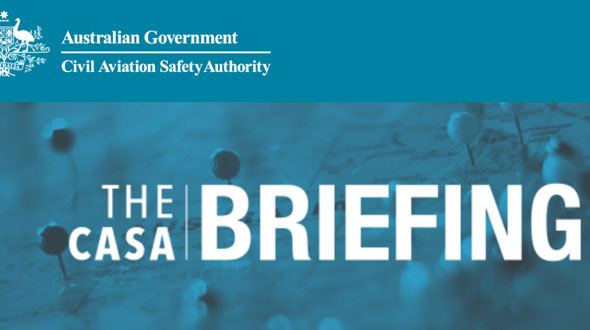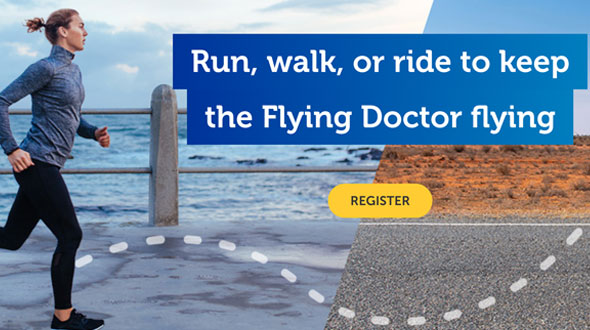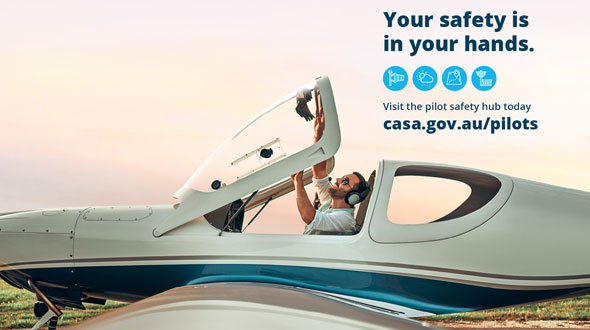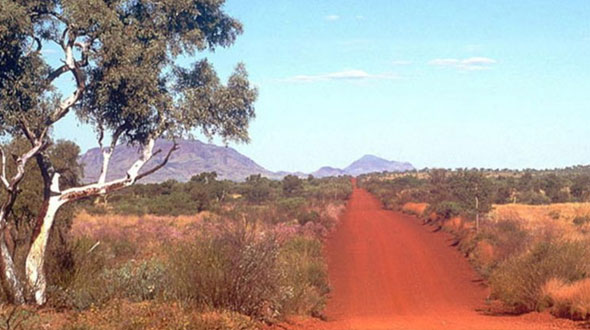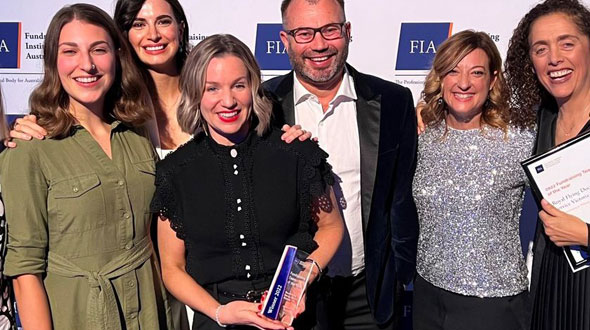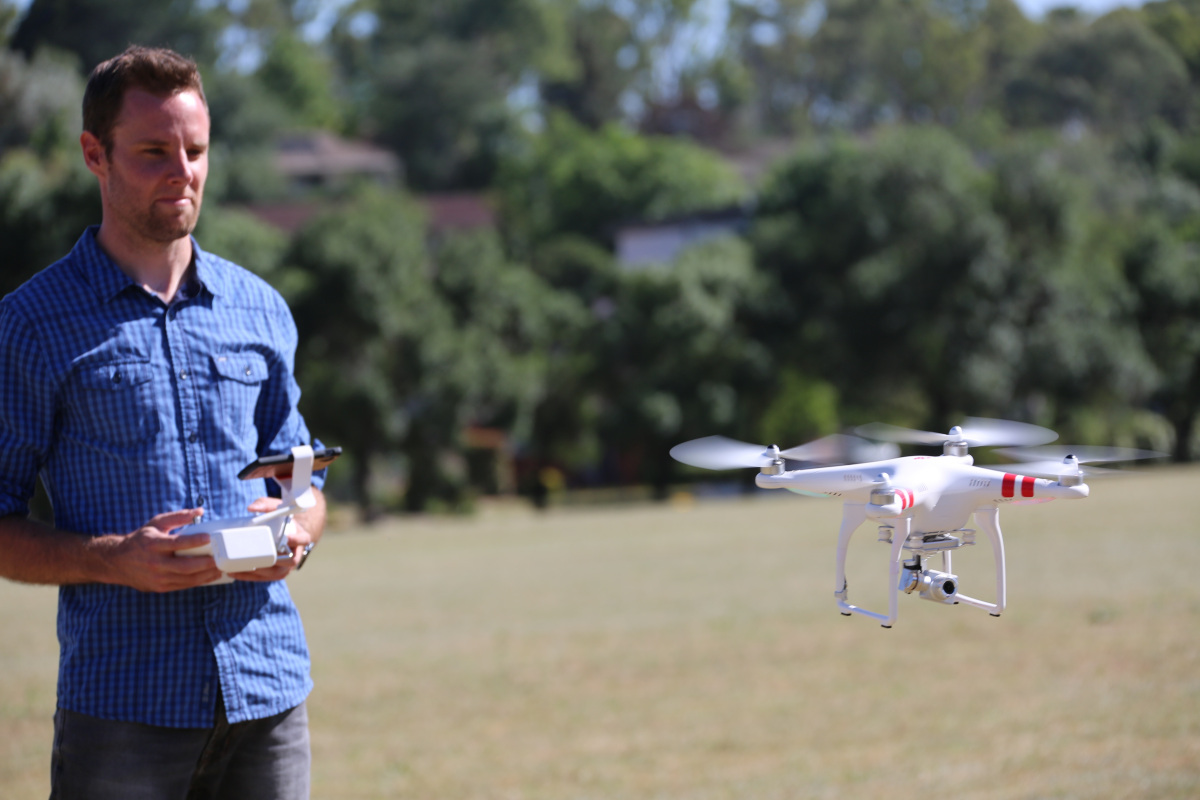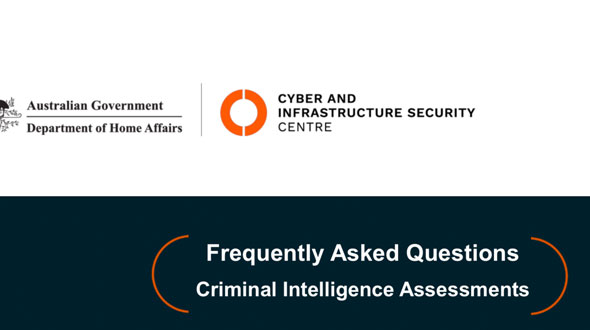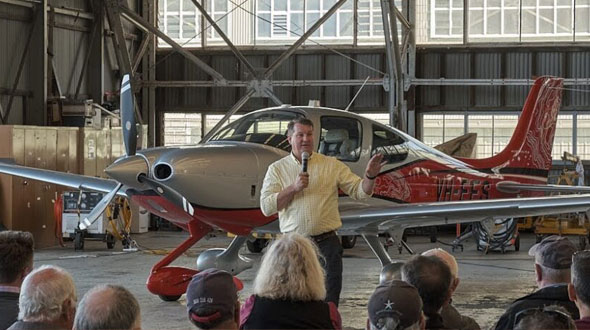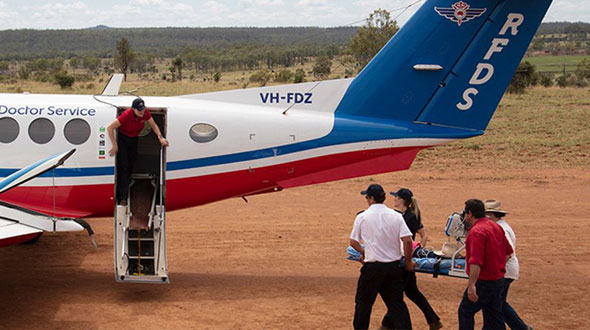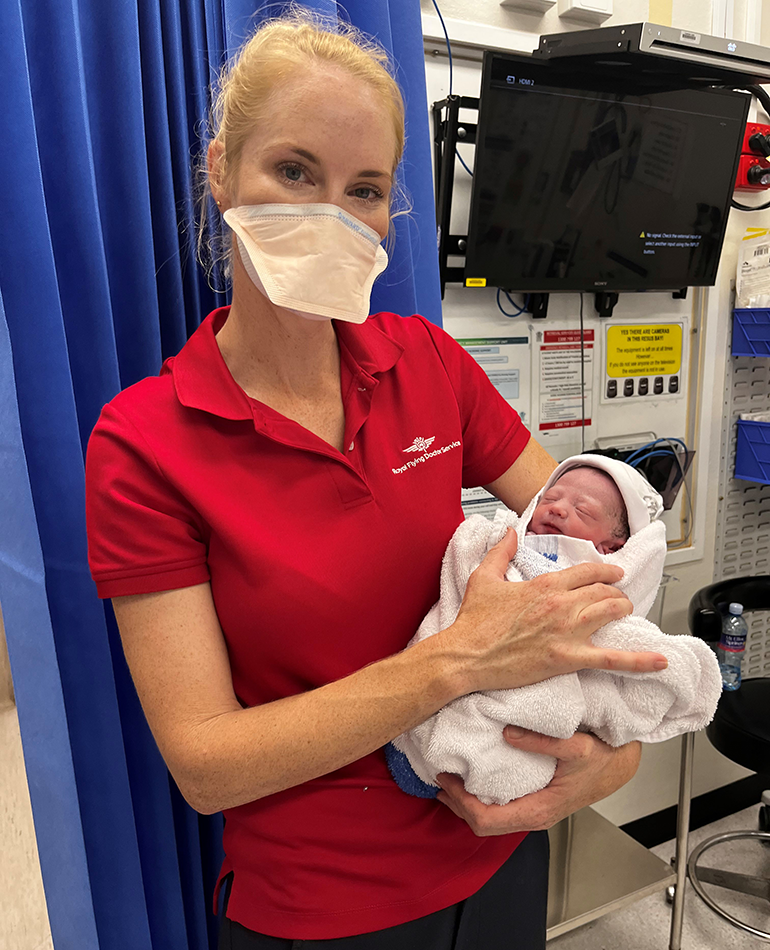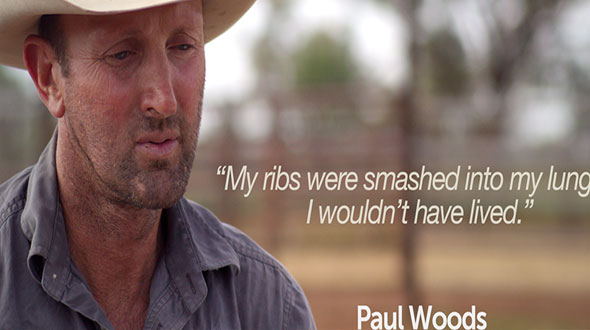Article supplied by CASA
Director of Aviation Safety, Pip Spence Are you up to date with the latest aviation safety developments? Do you want to refresh your knowledge or enhance your piloting skills?
We’re giving pilots a terrific way to invest in their ongoing development through a new national campaign backed by government agencies and aviation industry groups.
The campaign drives home the important message ‘your safety is in your hands’ and draws together a wealth of important pilot safety information on a new online hub.
Resources such as webinars, podcasts, videos and other safety-enhancing products are available in one easily accessible forum we believe will be an invaluable source for the piloting community.
In developing the campaign, we drew on research into pilot attitudes to safety information from CASA and other sources, as well as Australian Transport Safety Bureau (ATSB) occurrence data.
Our research showed that most pilots found that educational resources produced by CASA were helpful, but they were not always aware they existed or knew where to find them.
Safety topics are based on ATSB accident and incident data and we will focus on a new theme each quarter, starting last month with non-controlled aerodromes.
This is a significant and always relevant subject that emphasises the importance of radio calls, planning and situational awareness.
You can find useful tips from experts in informative videos demonstrating best practices in these and other key areas.
The campaign will run through to July next year and topics in future quarters will focus on forecasting and navigating weather, flight planning and using controlled aerodromes.
Our thanks go to Airservices Australia and the Bureau of Meteorology for contributing information and resources on operating at controlled aerodromes and forecasting and navigating weather.
Additional help came from the Australian Maritime Safety Authority and industry bodies such as Recreational Aviation Australia and the Australian Helicopter Industry Association.
The associations will be helping to get the message out to members and we are particularly keen to see rotary wing pilots use these resources after a number of accidents this year.
We are providing resources to help the associations and local flying schools encourage involvement, particularly from recreational and private pilot licence holders.
This pilot group believes it is extremely important to keep up to date with developments in aviation safety and has positive views about aviation standards.
We want to reinforce the concept that safety is in their hands, as well as the importance of thinking ahead and maintaining their skills.
However, the importance of the campaign’s message cannot be underestimated for those who are more qualified.
While CASA provides the framework for maintaining Australia’s safety, it is also a matter of individual responsibility.
We can all get blasé about any function we perform over a lengthy period but in aviation nonchalance can be fatal.
Flight Safety Australia has published many sad stories where the worst has happened as well as numerous articles where veteran pilots urge colleagues to refresh and update their knowledge throughout their careers.
Pilots owe it to themselves to check out these resources and I hope as many as possible do so.
All the best,
Pip
| Multi-engine helicopter rating now available |
| Helicopter pilots now have access to a class-like system for most single-pilot multi-engine helicopters. This follows feedback from industry that the current approach of requiring a type rating for each multi-engine helicopter could be simplified. |
| Read more |
| Operators can seek flight examiner course approval |
| Operators will now be able to seek approval from CASA to conduct their own Flight Examiner Rating Course (FERC). From September 2022, CASA-approved operators will be able to conduct training for flight instructors who want to gain a flight examiner rating and examiners seeking an additional endorsement. |
| Read more |
| Medical Records to move to myCASA |
| We are moving our Medical Records System (MRS) to sit within the myCASA portal next month to make more of our online services accessible from the one place. This means from the end of October, you won’t need a separate username and password to log in to MRS from casa.gov.au to apply for or renew your medical certificates – you will be able to do this by logging into myCASA. |
| Read more |
| The sky’s the limit photo competition |
| Share your love of aviation with us. Send us your best aviation-themed picture and it could be included in Flight Safety Australia’s wall calendar for next year. Over $3500 in prizes! |
| Read more |
| CASA welcomes new safety panel membersWe’re pleased to welcome 2 new members to our Aviation Safety Advisory Panel. Dr Tarryn Kille joined the Panel for its June meeting this year, and Shannon O’Hara is set to attend her first meeting in October. Read more |
| ADS-B windfallHalf off the price of anything is always welcome news but when it also enhances safety, it should be a lay down misere. Eligible operators can now get an Australian government grant that covers up to 50 percent of the cost of purchasing and installing safety-enhancing Automatic Dependent Surveillance Broadcast (ADS-B) equipment. The grant is capped at $5000. Read more |
| Review of flight trainingWe’re reviewing your responses to a General Aviation Workplan initiative that will see us expand the privileges of some flight instructors. An advanced copy of the instrument allowing flight instructors with a grade 1 training endorsement to train, assess and grant a range of endorsements for certain activities was released for comment in August. Read more |
| SMS milestones: one down, more to goPart 119 air transport and Part 138 operators conducting more complex aerial work operations should now be working toward the next safety management system (SMS) milestone in early December. Operators in these categories will need to provide an SMS implementation plan by 2 December with the idea of providing full documentation by the June 2024 and being ready to start by December that year. Read more |
| Progress on Mallacoota AerodromeStaff from the Civil Aviation Safety Authority and East Gippsland Shire Council have been working hard to re-introduce instrument flight procedures at Mallacoota Airport. Meetings over the past two weeks have established a clear plan to transition the airport to certification and to reintroduce the Terminal Instrument Flight Procedures. Read more |
| Have Your Say on Avalon airspaceGet your submission in by 23 September to have you say on changes to airspace near Victoria’s Avalon Airport. We’re proposing to remove Class E airspace at Avalon and replace it with Class D airspace. Read more |
| Register for our free September aviation safety seminars.We want you to come and join us as our AvSafety Advisors fly into your community to deliver our latest safety seminars. These friendly and supportive in-person seminars will enhance the safety skills of any aviation professional, no matter what level of technical knowledge, experience or flying time. Read more |
| Share your close call Have you had a close call? A close call is an experience you’ll never forget and often you’ve learnt a valuable lesson. Why not share your close call so others can learn from it too? Read more |


